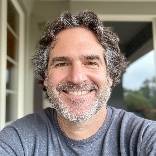Whether you are seeking help for yourself or a loved one, Anuvia provides trusted, compassionate care for substance use and mental health challenges-right here in Charlotte.

“I was a lost man with a broken spirit when I arrived at Anuvia. Today, thanks to its wonderful staff, I am blessed with a better life. I will always be indebted to Anuvia.”
Vaughn


CARF Accredited

Becoming a CCBHC

Evidence-Based Treatment

Rated 4.5 from 248 reviews
Anuvia Prevention and Recovery Center is a non-profit drug and alcohol rehabilitation center that has provided services to the Charlotte community since 1958. Whether you are seeking substance use treatment services for yourself or a loved one, have questions about your child’s behavior, or need training for yourself or your staff, Anuvia can help you. Our addiction treatment services include alcohol and drug use prevention, intervention services and programs, drug treatment by court, DWI classes, addiction treatment assessments, alcohol and drug detox, outpatient treatment programs, and inpatient rehab treatment.
People commonly use the terms “substance use disorder” and “substance abuse” to refer to the same condition. However, we use “substance use disorder” to remove any stigma or negative bias when discussing the condition and to recognize that treatment is effective. If you or someone you know is struggling with a substance use disorder, contact Anuvia for substance use disorder treatment options and get the support you need.
Honestly answering the following questions may help you find out if you have a substance abuse problem. Remember, however, that a brief self assessment cannot take the place of a personal assessment by an experienced substance abuse professional.
"*" indicates required fields
Tom
Jose
Beth
Jeff
Vaughn
Being proactive as a…
As a young person, you can create an impact in your community against drug and alcohol use. The first step is to make a firm decision that alcohol and drugs are not your “thing.” Be who you are, discover your anti-drug, and stick to it. You can become involved in youth substance abuse prevention programs and be a leader among your peers in making positive choices.
Congratulations, you have taken the most important step in substance use disorder prevention for your family by becoming an informed parent. The safety of your child is a priority, and protecting them from the harms of alcohol and other drugs is crucial. Parenting is not always easy, and educating our youth through substance abuse prevention youth programs can give them the tools needed to make healthier, safer choices.
Anuvia’s drug and alcohol rehabilitation services are accredited by CARF, a member of the National Council on Alcoholism and Drug Dependence and an approved provider for several Managed Care Organizations (MCOs), Medicaid, and most insurance companies. Alcohol and drug use prevention specialists and treatment counselors at Anuvia are highly trained and credentialed.
"*" indicates required fields
Don’t let your house become the neighborhood liquor store.
Lock up alcohol. Talk with your teens. Set clear expectations.
Prevent underage drinking before it starts.
TalkItUpLockItUp.org
#TalkItUpLockItUp #PreventionMatters #Anuvia ... See MoreSee Less
0 CommentsComment on Facebook
You posted WHAT?
Marijuana affects judgment, especially for teens and young adults.
Know the facts. Start the conversation. 🧠
#PreventionMatters #anuviarbordados ... See MoreSee Less
0 CommentsComment on Facebook
Spring forward into safer habits 🌸⏰
As we set our clocks ahead, take a moment to “spring clean” your medicine cabinet too. Lock up prescriptions, dispose of unused meds safely, and keep them out of the wrong hands. ... See MoreSee Less
0 CommentsComment on Facebook